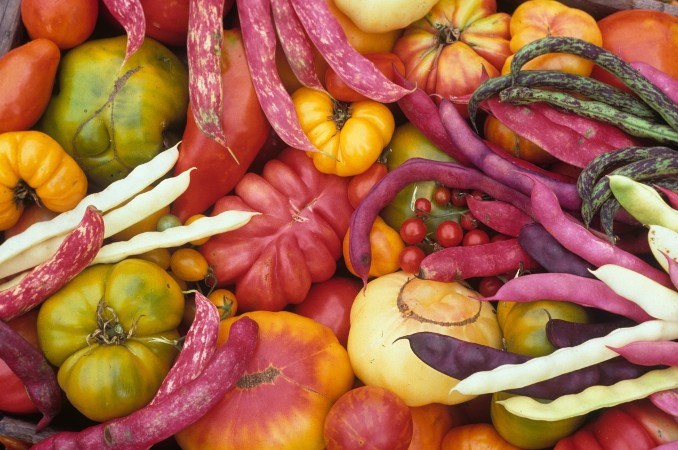Growing your own produce has many advantages. Nutritionists share that we should be adopting a more plant-based diet that is rich in fruits and vegetables. Health Canada has published a newer food guide that has shifted towards recommending a high proportion of plant-based food. More importantly, it will highlight the importance of knowledge and skills relating to health and nutrition.
Last night, it all seemed to solidify with me. As with most lovely summer evenings our supper was grilled on the barbecue, and we enjoyed the repast in our lovely back yard. Although we had grilled some chicken, it was the grilled vegetables that disappeared most quickly. The vegetable medley was straight from the garden with peppers, onions, zucchini and tomatoes all seasoned with fresh herbs (mostly basil). Watching the vegetables being rapidly consumed gave me “food for thought” for this article.
Plants offer us a host of health benefits, bringing fibre, vitamins and minerals. What they also offer us is suggestions that they also contain compounds that prevent a number of life-threatening diseases which cannot be substituted with dietary supplements. All this and I have not even mentioned the exquisite taste of what we grow ourselves.
As a horticulturist, I of course appreciate and even need to have that daily fix of growing things. Growing food to me is extremely important to my green thumb and my prowess as a chef. It all stemmed from the satisfaction I gleaned from feeding my family food that I grew with my own hands. A current student also asked me a question that came to mind. Is the food we produce now as nutritious as the food produced a long time ago. As this student had just turned 20, a long time ago may be relative.
It is true fruits and vegetables grown decades ago were richer in vitamins and minerals, than most we grow today. This disturbing trend is due to soil depletion. Modern, intensive cropping has stripped increasing amounts of nutrients from the soil, which in turn produces less nutrient-rich food. There is a reason a tomato tended and cherished by a home gardener, tastes better than one produced in a large grow operation.
Do keep in mind if you are producing anything that you wish to harvest, it is essential to ensure you are supplying water and nutrients in the proper levels. If you expect production you have to supply the inputs to allow the plants to grow optimally. I use a slow release fertilizer when I plant my containers but throughout the entire growing season I also fertilize with a diluted fertilizer each time I water. This ensures all plants are receiving all they need to bountifully produce.
In my back garden, which is completely grown in containers with a soil mix I make myself, I have a cornucopia of colours, shapes and sizes of many delectable vegetables. Choosing a wonderful blend of the colours of your home-grown food adds compounds called phytochemicals to the diet. These compounds provide a variety of roles to the plant itself but for those of us consuming them, they give us padding against aging, sharpen our minds and protect us from many ills.
Hippocrates proclaimed almost 2500 years ago: “Let food be thy medicine and medicine by thy food.” We love the idea that food can be the answer to our health and that if we eat nutritious food, we will not need medicine or supplements. How fitting that medical professionals also concur that if we heap our plates with fresh fruits and vegetable, we will be closer to optimal health.
May your garden be a plentiful provider.
Hanbidge is the Lead Horticulturist with Orchid Horticulture. Find us at www.orchidhort.com; by email at [email protected]; on facebook @orchidhort and on instagram at #orchidhort.




